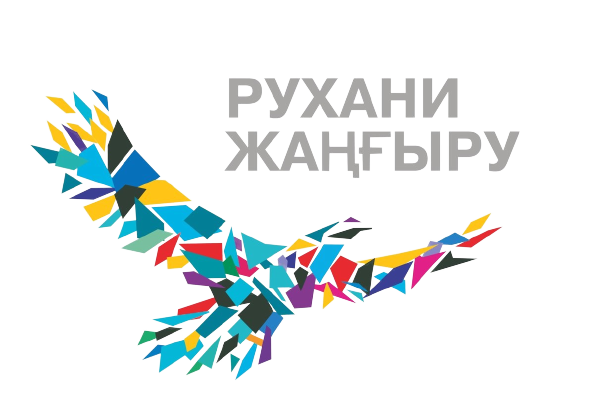REPORT ON THE WORK OF THE SCIENTIFIC AND METHODOLOGICAL SEMINAR
2023
Theme 1: “Methods of applying the theory of government (governmentality) by M. Foucault in studying the activities of the First Secretary of the Central Committee of the Communist Party of Kazakhstan D. A. Kunaev (late 1950 – December 1986)”

The purpose of the seminar is to consider methods of applying the theory of government (governmentality) in studying the activities of Kazakh party workers in the 1950s –1980s.
Moderator:
Mukhatova Orazgul Khasenovna – Doctor of Historical Sciences, Professor, Chief Researcher at the Ch.Ch. Valikhanov Institute of History and Ethnology
Speaker: Kasymova Didar Bisengalievna
Candidate of Historical Sciences, Leading Researcher at the Ch.Ch. Valikhanov Institute of History and Ethnology
Theme 2: “Transformation as one of the stages of modernization of a nomadic society
(on the example of the Kazakhs of the Bukey Khanate)”
Republican methodological seminar
October 31, 2023
The purpose is to reveal the process of transformation of the nomadic society of the Kazakhs of the Bukey Khanate and the results of its modernization.
Moderator: Mukhatova Orazgul Khasenovna – Doctor of Historical Sciences, Professor, Chief Researcher at Ch.Ch. Valikhanov Institute of History and Ethnology
Speaker: Shotanova Galiya Aitzhanovna
Candidate of Historical Sciences, Leading Researcher at Ch.Ch. Valikhanov Institute of History and Ethnology.
The purpose is to reveal the reasons for the beginning of the modernization transformation, to assess the role of Zhangir Khan in the Bukey Horde based on archival data, to show the reasons for the failure of Khan’s “progressive” policy.
Galiya Shotanova, a Leading Researcher of the Institute, PhD, defined the terms “transformation” and “modernization”, told about the origin of the Bukey Khanate, the reasons for its creation and the territory of the Khanate. According to the author of the report, the Bukey Khanate was founded by the authorities of the Russian Empire on the territory between the Volga and Ural rivers in 1801. The khanate included the areas of modern West Kazakhstan and Atyrau regions of Kazakhstan, as well as the Astrakhan and Volgograd regions of the Russian Federation. Another reason for the emergence of the khanate was the emptiness of these lands due to the migration of the Volga Kalmyks to China in 1771, the reduction of pasture borders and the unprecedented increase in hostages in the 18th century. History says that the era of Zhangir Khan’s reign was the heyday of the khanate. The historian proves this with such facts as the strengthening of the Islamic religion, the penetration of commodity-money relations. She also reported in detail that Khan paid special attention to the training of his subordinates, introducing European culture and education, and developing Islam.
At the end of the seminar, the participants discussed the topic from a scientific point of view. They also shared their suggestions and conclusions. These are: to take note of the preparation of a scientific project on the study of nomadic culture in interdisciplinary connection with Сh. Сh. Valikhanov Institute of History and Ethnology and the M. O. Auezov Institute of Literature and Art; to take note of the existence of a memorandum of cooperation between the Сh. Сh. Valikhanov Institute of History and Ethnology and Shaken Aimanov Kazakhfilm Film Studio and the participation of scientists of the Institute as consultants on historical documentaries, feature films; to adhere to a civilizational course in assessing the level of progressive, that is, economic, cultural and spiritual development under Zhangir Khan.
Theme 3: “New methods of studying the population census in Kazakhstan”
December 5, 2023
The purpose of the seminar: To show the basic data of the census materials in determining the population.
Moderator: Mukhatova Orazgul Khasenovna
Chief Researcher at the Ch. Ch. Valikhanov Institute of History and Ethnology, Doctor of Historical Sciences, Professor.
Speaker:
Kudaibergenova Aizhamal Ibragimovna, Chief Researcher at Ch. Ch. Valikhanov Institute of History and Ethnology, Doctor of Historical Sciences, Associate Professor
The purpose of the methodological seminar is to show the basic data of the census materials in determining the population.
The methodological seminar was attended by scientists, specialists, doctoral students, postgraduates, students who showed interest, the seminar was held in offline and online format. During the event, the speaker gave a description of the concept of the population census and focused on the history of the population census of Kazakhstan. She also reported on the effectiveness of mathematical and electronic methods of conducting the census. In addition, she noted the benefits of the census results for the development of our state.
As a result of heated discussions among the participants of the methodological seminar, the following proposals were made: conducting basic targeted financing of scientific research on the topic “Socio-demographic development of Kazakhstan” at an interdisciplinary level with the participation of specialists: historians, sociologists, statisticians, etc.; organizing special research competitions for young scientists-postgraduates and doctoral students on the topic “Results of the population census in chronicles”; preparing a methodological guide for postgraduates and doctoral students on the topic of a methodological seminar.











